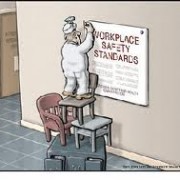Minimum Wage Increase is Just the Beginning
This article was published on the 2nd November by Chapman ER and sets out some of the employment related financial issues employers are going to face under the new Labour Government.
We recommend you stay up-to-date on matters that effect employers by subscribing to the Chapman ER newsfeed by clicking here and completing the request form.
The minimum wage is increasing. It already feels like old news, particularly in view of the stream of new government announcements. However, that is just the start of measures likely to increase wage costs. The Labour led government has also stated they will change the Equal Pay Bill the previous National government had proposed to prevent a case similar to the $2b aged care workers’ settlement. They are also introducing ‘Fair Pay Agreements’ which will set out minimum employment conditions across industries and sectors for terms such as wages, allowances, weekend and night rates, hours of work and leave arrangements. It sounds like reverting to old Award days to me.
If you are already gulping for air and deciding you will only engage contractors, be aware of the fish hooks of that approach. Within the first 12 months in government Labour has set out to extend the right to bargain collectively to contractors who primarily sell their labour, and investigate measures to improve job security for people in ‘precarious forms of employment’ which includes contracted and sub-contracted workers.
If you are now thinking you will engage youth workers as a more affordable option, there is no respite there. The Labour manifesto states they intend to abolish youth rates within 12 months.
To recap briefly on the minimum wage – it will increase to $16.50 from 1 April 2018. That’s a 4.8% increase.
In the Coalition Agreement it has also been stated that the minimum wage will increase to $20 per hour on 1 April 2021, with incremental steps in between. That is a 27% increase over 4 years. For a full time employee on minimum wage that is an annual salary of $41,600.
What does this mean for employers? To state the obvious, it will increase costs. For employers with proportionally more employees at or near the minimum wage level, that increase in cost will be proportionately higher. Industries that traditionally pay in the lower pay brackets are accommodation & food, wholesale & retail trade, and healthcare & social assistance. (Data source: Treasury)
If you currently have a wage differential between positions, for example a junior line operator, a senior line operator and a supervisor, your employees will want to maintain the differential. As such it is not only minimum wage earners who will expect a significant wage increase.
Unfortunately increasing minimum wage does nothing to improve productivity. I have yet to see employees working harder or smarter as a result of a pay increase. So you are not going to get better outputs as a result.
Some of the key options are:
- Absorb the increased costs by accepting lower profits (or in many cases operate at a loss). One impact of lower profits is a reduction in investment in capital (as return on capital is reduced).
- Reduce costs. As labour costs have increased, reducing staff may be the necessary answer, particularly if wages is a high percentage of costs.
- Pass on the higher wage cost to customers through increased prices.
- Implement productivity improvements (e.g. technology, systems) so you can reduce employee numbers, and/or improve profit margins.
- Explore the possibility of changing to a high wage, high value business model.
- Sell up, leave the country or hide under a rock for the next three years.
It is important employers start to consider the impacts on their organisation now, and plan for it in advance. Increasing prices incrementally is often more palatable to customers than one large increase. Putting in place plans to increase productivity needs to happen before the business is in trouble. If you need to restructure your staffing this takes time, and again is better done before the business is in distress. Just keep in mind Labour has also stated they want to begin consultation on improving minimum redundancy protection for employees.
And the changes keep on coming.




